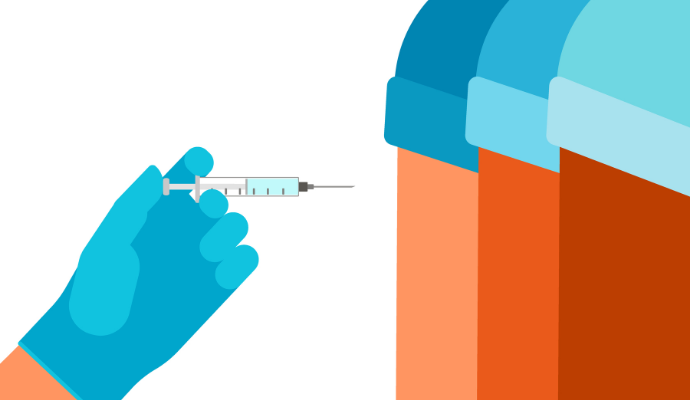COVID-19 Antigen Tests Prove More Accurate in Symptomatic Patients
While the COVID-19 antigen tests correctly identified 72%of people who were infected with the virus, the test only correctly identified 58% of asymptomatic patients.

Source: Getty Images
- A recent study found that COVID-19 antigen test sensitivity is higher in individuals with signs and symptoms of the coronavirus, rather than in those without symptoms present.
In individuals with confirmed COVID‐19, antigen tests correctly identified COVID‐19 infection in an average of 72 percent of people with symptoms, compared to 58 percent of those who were asymptomatic.
Notably, sensitivity was 78 percent higher in the first seven days after symptom onset rather than the second week of symptoms.
Overall, antigen tests correctly ruled out infection in 99.5 percent of uninfected people with COVID-19-like symptoms and 98.9 percent of uninfected people without symptoms.
“Our review shows that some antigen tests may be useful in healthcare settings where COVID-19 is suspected in people with symptoms. These tests do not appear to perform as well in people who don’t have symptoms of COVID-19,” Jac Dinnes, MD, senior research in public health, epidemiology and biostatistics at the University of Birmingham said in a summary of the study.
“Confirming a positive result from a rapid test with a RT-PCR test, particularly where cases of COVID-19 are low, may help avoid unnecessary quarantine. All antigen tests will miss some people with infection, so it is important to inform people who receive a negative test result that they may still be infected,” Dinnes continued.
Researchers gathered 78 coronavirus study cohorts and a total of 24,087 samples from the Cochrane COVID‐19 study register and the COVID‐19 living evidence database from the University of Bern.
The studies were from Europe or North America and evaluated 16 antigen tests and five molecular assays.
Additionally, researchers looked at the World Health Organization (WHO) priority target product profiles for COVID‐19 diagnostics. The profiles included standards for antigen tests.
To meet these standards, WHO determined that a test must be able to correctly identify at least 80 percent of people with infection and correctly dismiss infection in 97 percent of people who are not infected.
Estimates for sensitivity varied significantly between studies.
For rapid molecular assays, researchers looked at 33 studies of five different rapid molecular tests. Sensitivity varied depending on the molecular test used.
For example, the average sensitivity of molecular COVID-19 test, ID NOW, was 73 percent and average specificity was 99.7 percent. On the other hand, the Xpert Xpress COVID-19 test had an average sensitivity of 100 percent and an average specificity of 97.2 percent.
Researchers explained that these molecular tests had a large difference in COVID-19 detection, but they cannot be certain about whether these results will remain the same in a real-world setting.
“We could not investigate differences in people with or without symptoms, nor time from when symptoms first showed because the studies did not provide enough information about their participants,” they said.
Studies that assessed antigen tests used more rigorous methods than those that assessed molecular tests. But while several point‐of‐care molecular tests show very high accuracy and potential for use, more evidence of their performance when evaluated in real life settings is required.
Jon Deeks, professor of biostatistics at the University of Birmingham stated that it is useful to have evidence that some test brands do meet the minimum acceptable performance standards set by the WHO.
But these tests represent only a very small proportion of the commercially available tests, Deeks explained. The situation is different for testing people without symptoms, particularly for the use of repeated rapid antigen tests to screen for SARS-CoV-2 infection in students, staff, hospitals, and care home workers.
“We need more evidence on rapid testing in people without symptoms, on the accuracy of repeated testing, testing in non‐healthcare settings such as schools (including self‐testing), and direct comparisons of test brands, with testers following manufacturers’ instructions,” researchers concluded.
